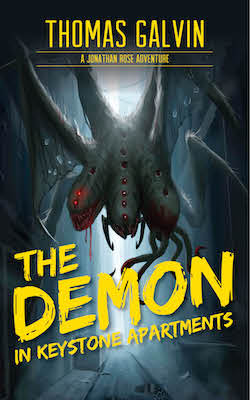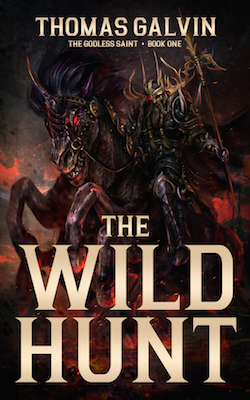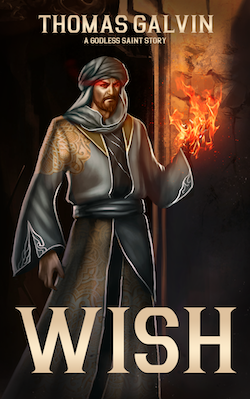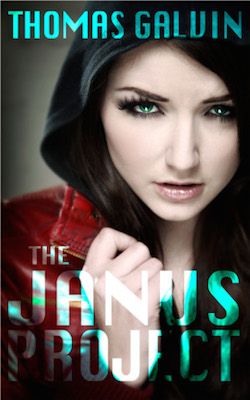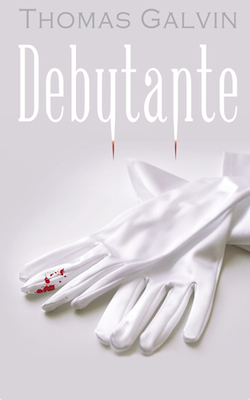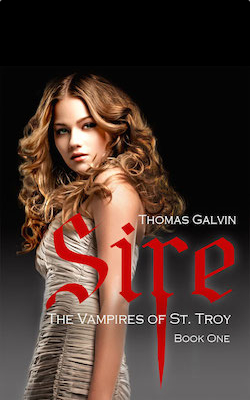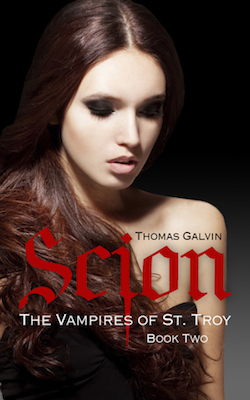Twilight and Tween Girls
A friend asked me what I thought about tween- and teen- aged girls reading Twilight yesterday, and I’ve been mulling that over ever since. Now, I’m neither a parent nor a teacher (or a teenage girl, for that matter), but not knowing what I’m talking about has never stopped me from pontificating before, so here are my official thoughts on the moral ramifications of Twilight.
Spoilers abound hereafter, so if you haven’t read the books and want to be surprised, this isn’t a good article for you.
One of the reasons Twilight is so popular with the adult set is that it is rather clean. The language is tame; I don’t think a character even says “oh my God,” which is a reflection of Stephanie Myer’s faith. The suspense isn’t particularly terrifying, and the violence, while present, isn’t particular gruesome, except for one scene in the fourth book, where Bella (the heroine), pregnant with Edward’s (the hero and vampire) child, has to have an emergence C-Section, and Edward, due to the special nature of the birth, has to use his teeth to cut through her womb. This whole scene is just… yeah. The way that the book deals with sex is also rather chaste. Bella and Edward do not consummate their relationship until after they have been properly married, despite Bella’s protests.
So, when someone says that there’s nothing bad in Twilight, they’re right… sort of. While there is nothing explicit in the material, the subtext is, frankly, horrifying.
Edward is the ultimate Byronic hero: self loathing and self destructive, but beautiful, poetic, and romantic. He is the epitome of Troubled but Cute and the Rebel with a Heart of Gold.
His actions over the course of the first story are honestly frightening. In my favorite example, he actually breaks into Bella’s room to watch her sleep - without her knowledge, and before they are even in a relationship. He is controlling, manipulative, and dismissive towards Bella. He wavers back and forth between being openly hostile towards her, ignoring her, and professing his undying love for her.
And as I keep repeating, these things are not romantic, they are warning signs. I’ve known a lot of guys like Edward in real life, and these situations never end well.
The thing is, Twilight is a fantasy. We know that Edward is the good guy, we know that he and Bella are supposed to end up together. We know that he will never hurt her, and we know that they will end up happily ever after.
The problem occurs when this fantasy meets up with reality. In reality, when a guy is a jerk to you one moment, and professing his undying love the next, it isn’t because he’s trying to protect you from his own dark nature, it’s because he’s a jerk. In reality, when a guy is manipulative and controlling, it isn’t because he is trying to save you from an immortal blood-drinker who has sworn your destruction, it’s because he thinks of you as his property. In reality, when a guy breaks into your home to watch you sleep, it’s because he’s not right in the head. In reality, when a young girl throws herself physically at the Troubled Loner, he is not going to gently rebuff her offer in an attempt to maintain her virtue.
So, I think Twilight has the potential to set young girls up for disappointment, and possibly even trouble. So, should you let your young girls read them?
Well, here’s the thing.
Our Senior Pastor gave a talk on alcohol the other morning, and one of the things he referred to was prohibition. The US Government spent millions of dollars and countless man-hours trying to fight something that the people were going to do anyway. Furthermore, labeling something “forbidden” only serves to make it more appealing; if you tell your girls that they can’t read Twilight, it’s going to make them want to read it even more.
And while the thought of girls sneaking out behind the school to read a trashy paranormal romance kind of makes me giggle, I also think it’s sort of unnecessary. I’m not a real advocate of shielding people from the truth. Sooner or later, they are going to be exposed to something that you don’t like and that you can’t control. I think Twilight falls into that category. It isn’t so destructive that you need to seek out every copy and burn it, but it does have the potential to be destructive enough that you need to be able to discuss it intelligently.
So that’s my advice. If your girl wants to read Twilight, let her… but read it yourself, too, and be prepared to discuss the difference between fantasy and reality.
Why Superman is boring
This week’s episode of Heroes reminded me of a point I made last season: when your character is essentially a god, its going to be very hard to write an interesting story about him. Spoilers abound, be thee wary.
Case in point: Peter Petrelli, who is able to “learn” the powers of anyone in close physical proximity to him. I havn’t been keeping a tally, but off the top of my head, Peter is:
- Telekinetic
- Able to see the future
- Able to read minds
- Able to fly
- Able to set off a nuclear explosion
- Throw lightning blasts
- Super strong
- Able to stop time
- Able to travel through time
- Able to teleport
- Able to turn invisible
- Able to walk through walls
- Oh, yeah, he’s also immortal
And those are just the highlights; I haven’t included any of the (possibly hundreds) of powers he’s picked up while wandering the halls of Level 5, or in the comics.
How do you put a character like that in danger? How do you give him a challenge? How do you create drama? Peter is so vastly overpowered that he has to fight himself, because another Peter is the only credible threat.
The only exception: the Hatian, the usually-silent agent of The Company. The Hatian (apparantly) has three powers: the ability to extract meories, the ability to erase memories, and the ability to cancel out the powers of anyone around him. You put Peter next to the Hatian, and he’s just another emo kid crying for his mommy.
Which bings me to Sylar, the second most powerful being on the planet, and a total psychopath (unless he believes that his mommy really loves him, at which point he reverts to a suit-wearing, brian-eating mama’s boy). HRG is forced to take Sylar - who has tried to kill his family on several occasions - on as his partner, leading the Hatian to ask if he is being replaced. HRG responds (paraphrasing) “only for a little while. I’m going to find out his weakness, and I’m going to kill him.”
Um, buddy, you’re standing next to his weakness. The Hatian is everybody’s weakness. Have the Hatian power-wammy Sylar, and shoot him. Done and done.
I <3 Alice, but she already knows that
You may have heard of Twilight, the trashy emo-teen vampire romance novels written by Stephenie Meyer (hillariously lampooned here, here, here, and here). These books fall solidly in the “guilty pleasure” category. I honestly shouldn’t like them. Edward, the protagonist’s sparkly vampire love interest, is a controlling, manipulative jerk, Bella, said protagonist, is basically the anti-feminist, and the plot, such that it is, practically bleeds Author Wish Fulfillment. And Mormonism. These books are pretty much designed to hold no appeal to me.
And I can’t get enough of them.
I didn’t go so far as to attend the Barnes & Noble Midnight Sale when the fourth book, Breaking Dawn went on sale - that would have been awkward: a room full of fourteen year old girls, their equally obsessed mothers, and me, a two-hundred-twenty pound powerlifter with a shaved head - but I did pick it up the next day. It was Twilight that got me through the Epic Failure that was Baltimore.
They also ensured that Stephanie Meyer will never have to work another day in her life, and convinced me that I need to write my own trashy emo-teen vampire romance novel. All you need is a handful of stock characters, a whisper of plot, and a thesaurus with lots of entries under “beautiful,” and the money just rolls in.
Anyway, Twilight the novel has become Twilight the movie, opening November 21st.
Allow me to introduce you to Alice Cullen. No, not the Scottish Politician (seriously), but the Physic Vampire. (Seriously).

Ignore the giant elbow. He, er, it’s irrelevant to the discussion. Although I do want to know what he does to make his forearms that big. Anyway, Alice is Edward’s adoptive sister, a yellow Porsche stealing, lavish party throwing, extensive wardrobe having, stock market playing, day saving, ballet dancing, humorously literal vampire that can also fight Edward, one of the greatest tacticians playing the game, to a standstill because she can see the freaking future, including that punch you were going to throw at her, you silly little boy. She’s fast enough to outrun a car, and strong enough to pick the thing up when she catches it, and if she likes you, she can make you immortal. Also, great hair, and a cute nose. I think Veronica Mars just got some competition.
Detective Skills
Veronica uses her observant nature and finely-honed deductive skills, plus a large dash of personal manipulation, to ferret out the bad guy, time after time.
Alice sees the bad guy commit the crime before it happens, and can be waiting there for them to show up.
Advantage: Alice.
Fluent in Sarcasm
Veronica basically defined this trope.
Alice isn’t particularly sarcastic; her humor stems more from being intensely literal in everything she says. For example, this little bit of banter:
Alice: Why don’t we play Rock, Paper, Scissors? Edward: (Sighs) Why don’t you just tell me who wins? Alice: I do. Excellent. So…
Advantage: I find both adorable. This one is a tie.
Distressed Damsel That Saves the Day
As I’ve said before, Veronica splits her time just about equally between saving the day and being saved, making her a feminist icon, but still allowing for moments of male heroism.
Alice is, well, not going to need your help any time soon. She’s just this side of indestructible, and even if you’re one of the, say, five things on the bloody planet that can kill her, she’ll still know you’re coming, and either not be there, or be very ready for you.
Advantage: Veronica.
I Can Turn You Into A Superhero
Veronica can help you study for your Private Investigator’s license.
Alice can turn you into an immortal, indestructible killing machine with inhuman beauty and grace, Eidetic memory, and no need to sleep, ever. Also, she’ll help you dress yourself.
Advantage: Alice.
This one is going to be close, friends. Truly a battle for our generation.
Oh, and just because:
Everything You Ever Wanted To Know About Lycanthropy (But Were Afraid To Ask)
If you’ve been following my posts on FaceBook, you know that I’ve been sucked into a discussion on the moral characteristics of vampires, as well as the date-ability of werewolves. Sort of like Hot or Not for the cryptozological set.
I was bored this afternoon, and I’m still debating whether or not to write Amber’s Refrigerator Magnet application, so I had two choices: look for the YouTube of that stupid I Kissed a Girl (And I Liked It), hopefully driving it from my skull, or do a little light reading on our favorite skin-walkers. I figured the werewolves were better for my soul.
As everyone knows, the “original,” and most recognizable, werewolf legend is that of the Greek king Lycaon. Lycaon tried to serve his own son as the main course in a dinner for Zeus, and in typical angry-god fashion, Zeus cursed him, in this case by turning him into a rampaging wolf.
Scholars - yes, scholars actually discuss things like this - believe that the real Lycaon suffered from rabies, which would account for his “foaming mouth,” “crooked limbs,” “feral nature,” and “locked jaw.” Rabies also shares another characteristic with traditional werewolf lore: it’s passed on from one victim to another through a bite.
But Lycans aren’t the only werewolf game in town. Most Aboriginal cultures, like the Native Americans, believed in men called Skin Walkers, who would dress in costumes and perform various rituals in order to take on the characteristics, or even physical form, of a totem animal.
And then there are the Berserkers, Viking warriors who dressed in wolfs’ skins, who went into a trance-like state, summoned the “spirit of the wolf,” and unleashed pure fury on whatever happened to be in their way when they woke up, be it friend, foe, or bar wench. These warriors were legendary for having the strength of ten men and shrugging off mortal wounds as if they were mere annoyances, a tendency which leads me to believe that their “wolf summoning rituals” involved some sort of rudimentary PCP. Combined with the wolf-skin garb, you can draw very clear parallels to the werewolf legends.
And then I stumbled onto VikingFighting.com, which promotes “the BERZERKER Viking Fighting system” as “the best, the deadliest and the most brutal combat system ever invented by man. It’s the world’s ultimate fighting system for military, police, special forces and civilians.”
Allow me to summarize the actual Viking system of fighting:
- Get drunk
- Remove clothing (they tended, like a lot of the Celts, to fight nude)
- Kill whatever happens to be nearby
- Pillage
- Repeat
That’s it. There was no art to it, no special tactics. That’s why we say “going berserk,” for heaven’s sake.
And that is demonstrably not “the world’s ultimate fighting system for military, police, special forces and civilians.” You know how I know? Because the berserkers are all dead. People with a more refined fighting system - namely, the Phalanx - showed up and stabbed them to death.
And the Phalanx wasn’t the ultimate fighting system, either. You know how I know? Because people with a more refined fighting system - namely, guns - showed up and shot them to death.
You know what the ultimate fighting system is, right now?
Some General: Barks a command in gravelly voice Some Private: Mashes a button A Freaking Nuclear Missile: Destroys all of your hopes, dreams, and Thor comic books in a rain of fire and woe.
Also, your motto: “Vikings stand and fight because if you run, you’ll only die tired” is less an “old Viking saying, and more the”motto of Vietnam-era snipers."
And finally, your self-awarded title, “Last Berzerker Supreme Grandmaster,” doesn’t really conjure images of a fearsome warrior from the Northlands. No, I’m picturing an overweigh college drop-out, living in his parent’s basement, and drinking Heineken. Which is German, by the way. You poser.
Iron Man - 30 Second Review
In the run up to Iron Man, some of the more science-minded members of the media have commented that we do not currently have the technology to power the suit Tony Stark created; drilling a hole through a piece of steel with one of his palm-lasers, for instance, would take more power than a full-sized nuclear reactor could produce, and the power necessary to keep a man-sized suite of armor airborne would be prohibitive, given space considerations.
I am happy to report that this is satisfactorily addressed in the movie: Iron Man’s exosuit is powered by distilled awesome.
Tony Stark: gets rich making weapons for the military.
Tony Stark: drinks gin, drives sports cars, and sleeps with super models. Often at the same time.
Tony Stark: gets captured by evil men of indistinct ethnicity.
Tony Stark: builds a suit of armor, decimates bad guys.
Tony Stark: has a crisis of conscience.
Tony Stark: builds even better armor, decimates even more bad guys.
Tony Stark: wins.
Rambo - 30 Second Review
Cute Christian Missionary: “We need to bring hope to the world! If you lose your life trying to save someone else, it wasn’t a waste.”
John Rambo: Fondles cross. “You might be right. Hey, look, evil brown people.” Kills them all.
Dan in Real Life
I’ve tried to write this three times now, but I have to keep starting over. Dan in Real Life is the best movie I’ve seen this year, and if you haven’t seen it, go and do so. And do so quickly, because it’s probably just about finished with its run in theaters.
But the reason I have to keep starting this over is that I’m not sure how to feel about it. It was, in one shot, the funniest, most touching, and most depressing movie I’ve seen all year.
Spoilers follow, so stop reading if you haven’t seen the movie yet.
Dan in Real Life is an interesting creature, because it manages to balance some of the funniest moments I’ve seen this season - I laughed out loud a lot while watching this movie - with some of the most heart-rending. When you watch this movie, you’ll be laughing one moment, and in the next you’ll be asking yourself how Dan is able to hold on and keep going.
The humor in this movie isn’t the kind of slapstick, “oh no, he just got hit in the crotch, again” kind of thing that passes for humor in most films these days, but the kind of humor that’s funny because it’s real. It’s funny because it shows us how absurd a lot of real life is, how absurd we are. It’s the kind of humor that would make you cringe a little, if you were watching it happen to real people instead of characters on a screen.
And the emotion isn’t the kind of contrived disaster that is so easy to find in Hollywood, either. Aside for the initial conceit, that Dan just happens to meet and fall for his brother’s girlfriend at a random bookstore-cum-bait-shop on the Jersey Shore, there was never a moment when I thought that the writers were cheating to get an emotional response. When you’re watching this movie, you can see pieces of your own life, your own family. Dan thinks and acts like a real person, and you can identify with him.
At least I can. Maybe you’re all better adjusted than I am - actually, that’s pretty much a certainty - but when I was watching Dan, I could see myself. When I was watching Dan, I could see the train-wreck coming, I could see the disaster looming, I could see the fallout, and I wanted to shout at him, to grab him and shake him and tell him that he’s going to mess everything up. And I could see myself doing the exact same thing.
Love will make you do the stupid. Especially when it seems like it was meant to be, like it was arranged by heaven. Especially when it seems like it might be your last chance to be happy.
Dan is, to borrow a phrase, living a life of quiet desperation. Watching him make breakfast and pack up the car and sleep next to the washing machine, I could almost hear his thoughts: “this is my life, and I just have to live it.” He’s broken, and he knows it, and he’s just trying to do the best he can.
And then she comes along, and it seems like she can make everything better. You can open up to her, talk to her, trust her. She can relate to you, understand you, have fun with you. It was meant to be. And it might never happen again.
You would do anything to hold on to something like that. So would I. So would Dan. He’d try to be strong, he’d try to be moral, he’d try to do what’s right, but in the end he’d fail. Just like I would.
In real life, the ending to a story like this is almost never happy. In real life, your brother doesn’t forgive you that easily, your family doesn’t forget that quickly.
But this isn’t real life, this is Dan in Real Life. This is a movie. And in the movies, everything works out in the end. In the movies, your brother hooks up with the hot salsa dancing plastic surgeon, your daughters love your new girlfriend, and the family doesn’t feel at all awkward about the whole thing.
If the movie hadn’t ended this way, I would be on here telling you how much it sucked, and how I don’t go to the movies to be reminded of real life. Instead, I’m here telling you that this was the best movie I’ve seen in a very long time, and that it made me think of real life anyway.
Stardust
Some people are shop boys, and some people are boys who happen to work in shops. You, Tristan, are not a shop boy. -Yvaine
The best fairy tales take an ordinary boy or girl, living an ordinary life in an ordinary place, and take them somewhere fantastic, prove them to be someone exceptional, and take us along for the journey, reminding us what it was like to dream that our ordinary lives, our ordinary selves, could be transformed if the stars aligned just so.
Stardust is one of the best fairy tales I’ve seen in some time, and one of the best movies of the summer. This summer, we’ve seen cars that turn into giant robots, old cops who still die hard, boy wizards, undead pirates, amnesiac super spies, and an Emo Spider-Man, but Stardust is something unique: Stardust reminds us of when things were simple, when good was good, evil was evil, and life-and-death situations could be dealt with with the wry confidence that the good guys always win.
Our story begins when a star falls to earth, in the form of a beautiful young girl named Yvaine (Claire Danes). This begins a struggle between three individuals: Tristan, who has promised to retrieve the Star to prove his love for his would-be love, Victoria, Septimus, who can only take his place on the throne by capturing the Star’s necklace, and the cruel witch Lamia, who’s power and youth can only be restored by consuming the heart of a Star.
Sitting in the theater, I thought to myself that I might be watching this generation’s Princess Bride, which coming from me is strong praise indeed. Stardust isn’t as quotable as Bride, but it does shine in one area in particular: character arks. The one issue I have with The Princess Bride is that the two main characters never really change. Wesley goes from a humble farm-boy to the most feared pirate on the seas, but we never really see it happen, and Buttercup is the epitome of helpless damsel is distress for the run of the movie. In Stardust, we get the chance to watch our characters grow and change.
Tristan starts the movie as a shy, clumsy boy pining for the affection of Victoria, a manipulative, materialistic, shallow girl who’s only quality is being the most attractive girl in a rather small town. He begins her quest for the Star because Victoria has promised her hand in marriage if Tristan can retrieve it by her birthday. When Tristan discoverers that the Star is actually a girl, he promptly kidnaps her, intent to drag her back to the village of Wall and claim Victoria’s hand - though he does promise the return her to the sky once he is engaged. Along the way, however, Tristan becomes Yvaine’s protector, rather than captor, crosses paths with evil witches and cruel princes, is captured by a gay pirate (played wonderfully by Robert DeNiro, who is obviously having a great time), learns to fight and dance and love, and finally becomes a man.
Yvaine’s journey is just as important. She begins the story a haughty, sarcastic aristocrat, upset that she has been brought down to earth and rightfully angry at Tristan’s behavior. Through the course of the story, though, we learn just what it takes to capture the heart of a Star, and just how powerful that heart can be.
The humor is funny, the action is rewarding, and the story is solid: Stardust comes highly recommended.
 TM
TM
